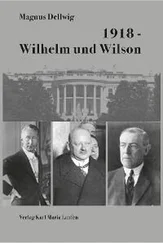Times Lies
© Magnus Stanke, 2016
Prologue
On the morning of the last day of her life, Sabine Schneider contemplated the nature of men. The cruelty of chance would have been a more pertinent subject to ponder, but it wouldn’t have changed anything. There were no otherworldly warning signs of her impending doom as she made her rounds in the sleepy village of Eschershausen, the peaceful town she called home— or if there were, she didn’t see them.
Sabine had a thirst for philosophical deliberation and a tendency to get lost on tangents. She believed that human nature could be studied anywhere in the world, even while delivering the post in a four-thousand-soul village where nothing ever happened.
Take this here street, the Hüschebrink, for example. What does it say about the nature of men?
The most prominent building, number twenty-one, right on top of the rise and the last house before the graveyard, dated from before the First World War. It was a mansion, really. For the last ten years or so, since the early 1970s, it had belonged to one of the richest families in the village who restored it to its former glory. Then, three-and-a-half years ago, tragedy struck, resulting in the deaths of the wife and child of the occupant. After that, most of the wooden shutters had been nailed down and some of the windows totally bricked up so that the building itself had taken on a sombre look.
Now whenever Sabine climbed the hedge-lined, tiled steps that led up to its entrance to deliver packages that didn’t fit into the post box by the street she couldn’t help feeling that the house itself was in mourning.
On this particular day there was no need to walk all the way to the door. The two envelopes fit perfectly well into the thin slot, but she felt strongly that she could somehow connect this building metaphorically to her ruminations if only she got a little closer.
Nobody saw her as she started up the path to the house.
That’s it, she thought. The twins, Albert and Tobias Hoffmann, surviving widower of said tragedy and his identical brother, respectively — the current occupants of twenty-one. They looked like clones, totally identical, yet Sabine could easily tell them apart; not because of their body language or demeanour, but because…well, when she had Albert in front of her there was a faint tingle in her groin. Okay, no, that wasn’t good enough. Female intuition didn’t cut it these days, not in 1982. Still, there was something about them that troubled and fascinated her in equal measure, philosophically speaking.
Nothing warned her of what was to come — no sixth sense, no female intuition, no eerie wind whistling through the nearby poplar trees as she approached.
The evergreen yew hedge that ran around the property was high enough to conceal most of the garden even from the path leading to the front door. Only as she got closer did she notice something vaguely unusual: the window to the dining room was open. Inside were two men, one carrying the other over his shoulder. The twins, apparently.
Sabine couldn’t remember seeing Albert out of his wheelchair since the accident, not because he was actually paralysed, but because he never got over his loss, had become a recluse and refused to walk. A pity, really. Albert had always been the nicer twin. His confident smile and worldly air had made him incredibly well-liked and the object of widespread swooning. Carrying him was undoubtedly Tobias, who, though indistinguishable from his twin in every other way, was forever — well, less nice, less likeable. It wasn’t that Tobias was nasty or mean, he was just…less. They were different inside even if they looked the same on the surface.
What came first, looks or character? Sabine mused. Did Albert turn out to be the nicer person because he looked subtly nicer or was it the other way round? Did people treat Tobias differently and therefore he became a less likeable person? If only she could get to know them a little better, Albert Hoffmann especially. Given half a chance she could bring the famous smile back to his sad, blue eyes. She could reignite it, make it shine again.
Well, maybe.
The stone steps ended a couple of metres from the entrance, and with them the hedge. Only now did Sabine see Albert sitting in his wheelchair outside, on the left of the house, an area that had until now been a blind spot for her. He was dozing, an open newspaper across his legs and a cup of coffee on the wooden table next to him.
‘Good morning, Herr Hoffmann,’ she said, hardly audibly in case he was asleep.
They were the last words she ever spoke.
While Albert didn’t stir, Sabine’s arrival had caught Tobias’ attention inside the house. He spotted her through the open window in the salon, dropped the man he was carrying over his shoulder and disappeared from sight. Seconds later, the heavy wood panelled front door opened soundlessly from the inside.
The last thoughts that went through Sabine’s mind as she turned her head and saw Tobias in front of her — closer than expected, his hands behind his back, his breath rattling as though he had just run a marathon — were this: if that human bundle on Tobias Hoffmann’s shoulders seconds earlier wasn’t Albert, who exactly had he been carrying? This was Tobias in front of her, wasn’t it? He almost smiled like…
Then his left hand made a swift upwards movement and something stabbed her in the heart.
It went dark and Sabine Schneider was dead before her body hit the gravel.
Part One
It is daytime, probably. He is aware he has been lying there for quite some time, hours maybe, but the urge to do anything about it — to wake up properly, to get up and move around and inspect his environs — is weaker than the one that tells him to rest some more; no need to get out of bed just yet. The cot or whatever it is feels tolerable. He isn’t cold or wet, he doesn’t think he has pissed himself and he is in no pain.
No, wherever he is, it is all right, no hurry to do anything about it. Knowledge, clinical, precise knowledge of self or others never does any good to anyone. He knows this from experience.
The cotton in his head is different from a straight hangover, that much is clear. Absent is the reassuring thirst of the hair-of-the-dog-that-bit-you that can be quenched by continuing to drink. No, this mist will settle sooner or later, but inevitably the headache will sunder his head in two, probably not much later than whenever he decides to get out of bed. The less he thinks about it the longer he’ll be pain free. Whatever it is that has brought on this sensation is most likely chemical, some kind of drug, judging by the bitter taste and the film on his tongue.
After a while, and against his better judgement, Karl sits up and looks around him. Memories, conflicting and troubling, struggle to come to the foreground despite his best efforts.
The room he is in isn’t exactly small. It’s much bigger and nicer than the prison cells he has slept in. Hell, it’s nicer than most of the flats he’s lived in. The furniture is BRD style, solid wood, a table, a chair, a cabinet; none of that cheap linoleum crap they have on the Other Side. There is also a fridge, a hot plate, even a sink, a shower and a toilet and walls, clean walls, undisturbed wallpaper with red rhomboids, no signs of damp or lurid prison drawings, no peeling in the corners, no crumbling.
The only tangible reminder that Karl is indeed a prisoner of some sort is the fact that there is no window in the room and that the sturdy metal door is without a handle on this side.
Still, nobody raises him, hassles him, plays marching music to prevent him from sleeping. There have been no beatings that he can remember – a quick body check confirms he has no new bruises and, now that he thinks about it, he also notices there aren’t any unpleasant noises, no screaming wardens or rioting prisoners, no humming electricity or fluorescent lights. In fact, there are no sounds at all.
Читать дальше












